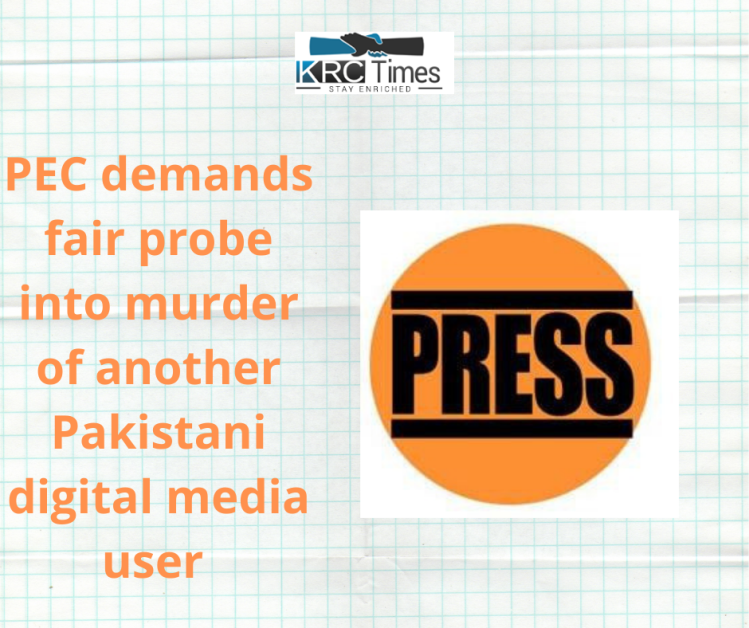The only factors that have remained consistent in Pakistan are the farcical elections and the predominance of the army in matters political
 KRC TIMES National Bureau
KRC TIMES National Bureau

The only factors that have remained consistent in Pakistan are the farcical elections and the predominance of the army in matters political. The latest round of developments in the country are no different. How the army curated an uneven pitch and an unlevelled playing field was for the world to see and certainly not marvel as it is not for the first time that such a situation has developed there. But the outcome was certainly something to marvel about.
The split verdict which the elections have thrown, despite best efforts by the army to install its puppet regime in all likelihood headed by their favourite, this time around, former three-time Prime Minister Mian Nawaz Sharief heading his faction of Pakistan Muslim League (PML-N), has sent army chief General Syed Asim Munir Ahmed Shah’s plans going awry. The split verdict with his party emerging as the single largest party following the largest battery of independent candidates backed by another former Prime Minister and cricketer turned politician Imran Khan, has even sent Mr Sharief’s plans for a toss.
All machinations of General Shah to provide a clear field to Mr Sharief and his party seem to have slammed the army chief on his face. The hung national assembly has already led to an all out attempts by him and his supporters to cobble up an alliance of the favoured ones. With the large number of independents owing allegiance to Mr Khan and his now banned Pakistan Thereek-e-Insaaf Party, out of his reach, but natural, Mr Sharief’s best bet was to go back to an old ally Pakistan Peoples’ Party (PPP) of Asif Ali Zardari and his son Billawal Bhutto to forge a coalition.
Never have in the past the army’s plans to effortlessly install its puppet regime failed as has happened this time. Nothing was left to chance by the army chief and his cohorts but the people of Pakistan, it seemed, had different plans. The plans that sidestepped and overreached the army’s ambition to govern the country by proxy.
Over the months ground was being prepared and atmosphere readied not only for Mr Sharief to return from exile but also to ensure that PML-N emerged victorious. Well, the armed forces did achieve “honourable” return of Mr Sharief, who was facing serious cases including those of corruption, through manipulating court verdicts and taming his political opponents primarily Mr Imran Khan. But not installing him at the helm so easily.
But the indomitable Pathan since jailed and under incarceration perhaps had some other ideas. Undeterred by the army’s repression and its over-ambitious chief’s attempts to govern the country via a puppet regime, Mr Khan managed to establish a strong bond with the public from behind the bars. The outcome in the form of a large number of his candidates winning as independents, his party PTI having been banned its election symbol frozen, is for everyone to see.
This happened despite the fact that Mr Khan was jailed and silenced. His colleagues were debarred from contesting elections under the party banner. The famous cricket bat symbol of once the world’s top allrounder was also taken away. Nevertheless, and not withstanding these repressive measures with judiciary also playing footsie, Mr Khan’s battery of independent candidates put up a strong showing that too under extremely adverse situation.
Independent candidates backed by Mr Khan won 101 of the 265 contested lower House seats emerging as the single largest group if not the party as his outfit stood banned. The situation catapulted Mr Sharief’s PML with 75 and PPP with 53 seats to try and repeat formation of an alliance government with an obvious intent to keep Mr Khan, even indirectly, away from power. However, the PPP, though a junior partner, demanded the coveted Prime Minister’s post for Bilal Bhutto Zardari whose innings as Foreign Affairs Minister in an earlier PML (N)-PPP coalition was inglorious.
The confusion was worst confounded when even his party announced to make efforts and strike an alliance with two right-wing religious parties with an eye on forming government at the Centre as well as in the politically important provinces of Punjab and Khyber-Padhtunkhwa. “We have decided to join Majlis Wahdat-e-Muslimeen (MWM) to form the government at the Centre and in Punjab, and Jamaati-e-Islami (JI) in Khyber Pakhtunkhwa,” PTI Information Secretary Mr Raouf Hassan declared.
Despite the solid backing of the army with a long history of installing and toppling governments, the developments have unearthed the underlying fragility in Pakistan’s democratic process. And the fact that the elections have never been free and fair with the army achieving certain new “milestones” this time around. No one had perceived that army’s efforts would fail so miserably as after all command and control has been in their hands with army chief running supreme. No doubt, a hung parliament in Pakistan has taken everyone including pollsters and even the army generals by surprise not to talk of the world community at large. It was a given thing that the army would have its way and that Mr Sharief, who had been working in close proximity with the generals to make a comeback, will be the Prime Minister.
But that was not to be. Perhaps the people of Pakistan had different designs with nearly 44 per cent young and new voters strongly rallying behind Mr Khan and his independent candidates. This is the only silver-lining in the otherwise murky affairs of democracy in Pakistan. People of Pakistan have perhaps shown a direction and given a food for thought to the army as well that they should better look after the borders of the country and confine themselves to barracks rather than indulging in politics.
The political uncertainty does not augur well in the fragile state of Pakistan with another electoral process falling by the wayside. However, it has thrown by certain interesting trends that can be discerned from the poll outcome. The biggest takeaway was that Mr Sharief and his PML-N had, contrary to the belief, no mass appeal across the electorate. Contrary to the expectations that his homecoming after many years in exile would create a mass hysteria and a wave, did not fructify.
The party did well in its traditional areas of influence in Punjab but it felt terribly short of its dominant self in the region. It fared poorly in Sindh, Balochistan and Khyber Pakhtunkhwa. Mr Sharif’s claim of economic competence failed to persuade the voters. He stood in two constituencies winning from Lahore but embarrassingly losing in Mansehra to a PTI-backed candidate. This is something which Mr Sharief, while on course to rehabilitation, would have not have liked. The overall impression remains of a party rooted in its Punjabi heritage, struggling to create a pan-Pakistan identity.
In the case of Bhutto-Zardari-led PPP, the results were abysmal. It is a desultory outcome for a party once seen as the natural party of civilian governance in Pakistan. The PPP has continued to retain sway in Sindh but its appeal has diminished in other parts of the country. In a country that has a huge population of young people young Bilawal Bhutto-Zardari has failed to win over the youth. The fact that he contested from three constituencies showed his own lack of confidence. He badly lost in Lahore where he came third.
Promotional | NE India Writing Star Contest







